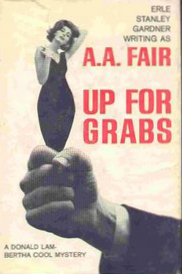Vostromo‘s Interview with Author John Freeman Gill

JOHN FREEMAN GILL is a native New Yorker and the writer behind Avenue magazine’s popular Edifice Complex column. His nonfiction pieces about New York have been featured in The New York Times Magazine, the collections The New York Times Book of New York and More New York Stories: The Best of the City Section of the New York Times, as well as The Atlantic, The New York Observer, The Washington Monthly, The International Herald Tribune, Premiere and, because that’s not enough, “and others.” (For comparison’s sake, mine have not.)
John graduated Yale University summa cum laude and received an MFA in Writing from Sarah Lawrence College. (For comparison’s sake, I did not.) His novel THE GARGOYLE HUNTERS has just been published by Knopf, to wide acclaim from the Washington Post, the Los Angeles Review of Books, Barnes & Noble Discover Great New Writers, Omnivoracious: The Amazon Book Review, Booklist, and, because that’s not enough, “and more.”
John is charming and witty and loves Steely Dan and cats and if there is even the slightest degree of autobiographical truth in his novel do not, I say not, let him teach you how to French kiss. If you meet him you can ask about the roast chicken with the Barbie doll head, though I don’t advise it. Everyone in his family has fabulous hair. (For comparison’s sake, I once had a gerbil named Monty.)
*****************************************************
VOSTROMO: Welcome to PaperBackSwap, John, and congratulations on the publication of your novel. You’ve been writing about architectural history and the stories behind cityscapes for a long time. Where does your interest in the subject come from?
JOHN FREEMAN GILL: Initially it was just osmosis. The Upper West Side apartment where I grew up was something of a museum of Lost New York. My mother is an artist and native New Yorker, and for the past 63 years she’s been keeping one step ahead of the wrecking ball by painting portraits of city blocks just before their buildings are torn down. When I was growing up, the demolished landmarks of old New York were very much alive and well on the walls of our apartment: the 57th Street Automat served up cheesecake in the kitchen; the windows of the Fifth Avenue Bonwit Teller (razed for Trump Tower) displayed dresses in my mom’s bedroom; trains hurtled along the Third Avenue el in our front hall. In addition, she collected salvaged scraps of the lost city. There were grotesques carved into limestone keystones, terra-cotta spandrels that had once adorned a tenement, a stained-glass window bearing the word Delicatessen, giant carved stone brackets turned upside down to support a stone slab as a bar. She even had a picture frame made of wood salvaged from the Third Avenue El, or elevated train, when it was demolished in the 1950s. So I lived with the vanished city, which inevitably sensitized me to the living city around me when I headed out into the streets to live my life as a teenager and then adult.
V: One of your columns for Avenue begins If you know where to look, [the city] is full of rabbit holes, portals to worlds of splendid peculiarity hidden from the street. This could easily be the tagline for The Gargoyle Hunters. Setting aside the fact that I was not consulted about this obvious missed cross-promotional opportunity, real events inspired the novel. What made you decide to incorporate them into fiction, instead of reportage?
JFG: In truth, real events inspired only one important strand of the novel; most of the story is my invention. I began with the characters and the circumstance—a 13-year-old boy in the aftermath of a difficult divorce in the vividly crumbling New York of the 1970s. I thought it would be meaningful to tell a small, intimate story of a fracturing family while also telling a big story about the near death of New York City in the year and a half leading up to the famous Daily News headline: FORD TO CITY: DROP DEAD. The idea of using a real-life event came later. The event was a bizarre and seemingly impossible architectural heist: the theft of an entire landmark city building, which shocked the city and made the front page of The New York Times in 1974. The mystery was never solved, and I wanted to find out how the story ended. So I sat down and wrote it, placing at the center of the action my reluctant 13-year-old protagonist, Griffin, and his obsessive father.
V: Hunters is a coming-of-age story that mirrors a changing cityscape with a boy’s changing understanding of family dynamics. One of the ways you express this is the twinning of opposites: characters focusing on the importance of the past miss the importance of the present; they move up and down from parapets to basements, inside and outside from bedrooms to scaffolds; they have deeply private moments in very public places; they compare the meaning of the lowliest of buildings (an outhouse) to the most exalted (the landmark first skyscrapers of New York). There are lovely phrasings scattered throughout the book: an architectural detail is “protected from the filthy heavens;” an artwork throws a “spotlight on the invisible;” a first kiss makes one feel “magnificently lost and at home at the same time.” My favorite of these is the moment the narrator imagines the part he played in his complex family history as “the bridge that kept my parents apart.” I mention these to prove that I can read, and that I read your book, and that your publisher shouldn’t feel they wasted their money sending me a copy, and that they haven’t made a huge mistake by agreeing to have you appear here. Truce?
JFG: In theory, a truce would be just fine. But then what am I going to do with this handy sword-cane I brought along to this interview? [Editor’s note: for comparison’s sake, I came to this interview unarmed.]
V: The theme of twinned opposites has a larger resonance, reflected in the first-person narration being easily, straightforwardly casual but unable to cover a deep undercurrent of menace: characters appreciate and cherish their city even as they lie, steal, and manipulate its people, flout its laws with abandon, risk their physical safety in its heights and depths; they reach for meaningful connection to each other even as they keep dangerous secrets. It’s a feeling startlingly encapsulated in the prologue, where a happy family drive to a Sunday picnic reveals the steaming sidelots of a slaughterhouse, glimpsed in passing though the pre-dawn fog. It’s also a very American maturation from boy to man, and marks a striking departure from the themes of your earlier works like My Sister Is A Big Fat Poopyhead and Mom, Make Her Give My Hot Wheels Back, to name two. Was this change of focus a conscious choice, or did your sister, now an adult, threaten you in some way, perhaps physically?
JFG: For the record, you just made up those two sophomoric titles, but I gather your readers are used to that sort of thing by now. On a serious note, though, one of my sisters actually did regularly chase me around and beat the hell out of me when I was little. Then one day, when I was seven and she was eleven, I turned around and socked her in the eyeball. Never one to skimp on drama, she ran around screaming, “I’m blind! I’m blind! I can’t see! Oh, I’m blind!” We’ve been getting along swimmingly ever since.
V: I went to school with your sister Claudia. She was one of the Beautiful People, it’s not much of an overstatement to say a lot of the boys had a bit of a crush on her. Years later, when I did a show that required me to grow a full beard, I had some head shots taken, and still more years later I shared one on Facebook. Her comment was “Very handsome, got better with age!” which is of course a barely-concealed way of saying “my god you were hideous in tenth grade.” Does this kind of passive-aggressive exchange explain why you named her “Quigley” and did all those horrible things to her in the book?
JFG: Ahh, you are jumping to false conclusions based on the one sliver of my life you know about. I actually have two sisters, and Quigley is not based on either of them. (And may I just say how sweet I think it is that after all these decades, a man of your advanced years still feels compelled to say, “a lot of the boys had a bit of a crush on her,” when you’re clearly talking about yourself?)
V: Claudia designs, crafts and sells beautiful decorative home objets d’art. As a writer, have you been able to solve the conundrum of how to be positively supportive of someone’s creative work while drawing as little attention as possible to the fact that you haven’t bought anything from them because as much as you like her stuff it’s hard to afford because money is tight what with having to save for the plastic surgery you want to get because of what she said about you in high school?
JFG: If I tell you you’re a perfectly attractive man, will you take off that rubber Nixon mask? It’s hard to hear what you’re saying in there.
V: Did Claudia read your book? Did she like it?
JFG: Yes, Claudia did read it and was generously supportive. But I guess you never know if she was just being polite; after all, she told you you were handsome.
V: Do you know if she’s… seeing anyone? I mean, just, you know. Curious! About an old friend, it’s not, I mean, you know, I’m only…
JFG: You’re gibbering. You know that, right?
V: [Loud coughing] Getting back to The Gargoyle Hunters, what stands out for me more than anything is a single line that I can fairly say sums up much of my own outlook on life. It occurs just about halfway through, at a time when the narrator is learning that an individual life, like a single building or an entire metropolis, is a process of construction, use, and wear over time, a million pieces held together by a purpose perhaps appreciated fully only in restrospect; I thought to end our time together by quoting it:
I felt it vibrating through my fingertips — like the time I touched the robot girl’s damaged nipple at Dad’s studio door, only much, much worse.
If that drives one person to read your book, I’ll have done my part.
Thank you Mr. Gill and of course, Vostromo for this great interview!
Mr. Gill has generously offered a brand-new copy of his book, The Gargoyle Hunters to a PaperBackSwap member who comments here on the Blog. A winner will be chosen at random. We will announce the winner in a week. Good Luck to everyone!
Save
Save
Save
Save
Save
Save
Save
Save
Save
Save
Save
Save
Save





